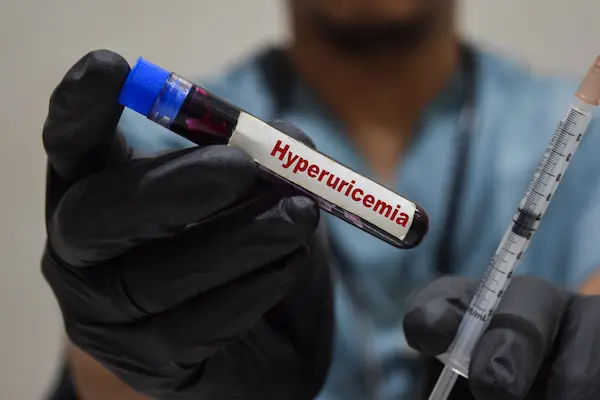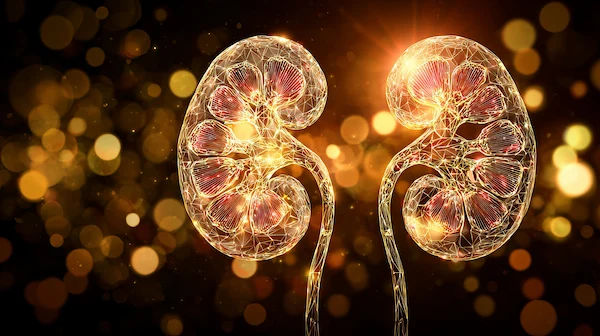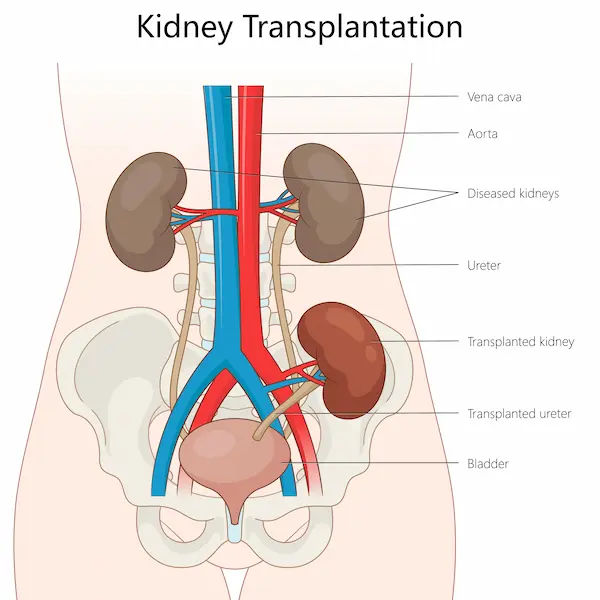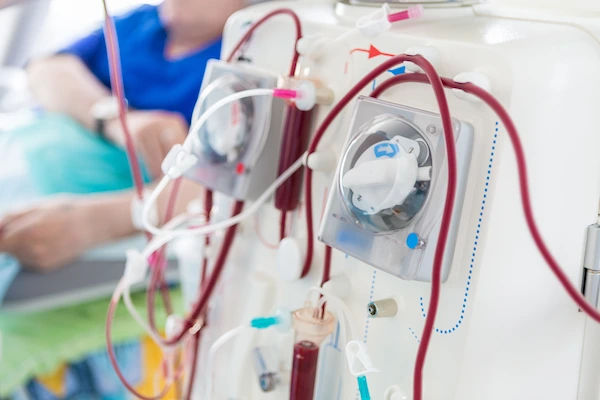Guide to Kidney Transplants: FAQs & What to Expect
Explore everything you need to know about kidney transplants, including the process, recovery, risks, benefits, and answers to FAQs to help you prepare for life before and after surgery.


Introduction
Facing end-stage renal disease can feel overwhelming, but a kidney transplant often represents a beacon of hope and a return to a better quality of life. It's a complex journey, filled with both incredible rewards and significant challenges. If you or a loved one are considering this path, you undoubtedly have countless questions. This comprehensive guide is designed to walk you through every aspect of the process, from initial evaluation to long-term life after surgery. We'll demystify the medical jargon, explain what to expect at each stage, and address the most common FAQs about kidney transplants. Our goal is to empower you with knowledge, so you can feel confident and prepared as you navigate this life-changing decision.
What is a Kidney Transplant?
A kidney transplant is a surgical procedure to place a healthy kidney from a donor into a person whose kidneys no longer function properly. This new kidney takes over the critical work of filtering waste and excess fluid from the blood, freeing the recipient from the need for dialysis. The donated kidney can come from a living donor (often a family member or friend) or a deceased donor.
Who is a Kidney Transplant For?
A transplant is typically considered for people with irreversible, end-stage renal disease (ESRD). Common causes of ESRD include diabetes, high blood pressure, chronic glomerulonephritis, and polycystic kidney disease. However, not everyone with ESRD is a candidate. A thorough medical and psychosocial evaluation is necessary to ensure a patient is healthy enough for surgery and committed to the lifelong care required afterward.
The Profound Benefits of a Successful Transplant
The advantages extend far beyond stopping dialysis. A successful kidney transplant can significantly increase life expectancy, enhance energy levels, and improve overall quality of life. Recipients often enjoy a less restrictive diet, fewer fluid limitations, and the freedom to travel without being tied to a dialysis center. For many, it’s a chance to reclaim their independence.
Consult a Nephrologist for the best advice
The Kidney Transplant Process: A Step-by-Step Journey
Step 1: The Comprehensive Evaluation
The first step is an extensive assessment at a transplant center. This isn't just about your kidneys; it's a full-body health check. The transplant team, including nephrologists, surgeons, and social workers, will conduct numerous tests—blood work, imaging scans, heart and cancer screenings—to ensure you can safely undergo the procedure. They will also evaluate your support system and psychological readiness.
Step 2: The Waiting List and the Matching Process
If approved, you are placed on the national kidney transplant waiting list managed by the United Network for Organ Sharing (UNOS). Your place on the list is determined by a complex scoring system that considers factors like blood type, tissue type (HLA matching), antibody levels, time on dialysis, and waitlist time. The average wait for a deceased donor kidney transplant is 3-5 years, but this can vary widely. Finding a living donor can drastically shorten or eliminate this wait time.
Step 3: The Transplant Surgery Procedure
When a kidney becomes available, you'll get "the call." The surgery itself typically takes 3-4 hours. Contrary to what many think, your own failing kidneys are usually left in place unless they cause problems. The new kidney is placed in your lower abdomen and connected to your blood vessels and bladder. This strategic location makes it easier to monitor and allows for a less complex procedure than removing the old kidneys.
Life After a Kidney Transplant: Recovery and Beyond
The Immediate Recovery Period
You can expect to stay in the hospital for about 5-7 days. Doctors will immediately monitor your new kidney's function. You'll be up and walking within a day or two to aid healing and prevent complications. Full recovery from the surgery itself usually takes about 6-8 weeks. During this time, it's crucial to avoid heavy lifting and strenuous activity.
The Critical Role of Anti-Rejection Medications
This is the most important commitment after a transplant. Your body’s immune system will see the new kidney as foreign and will try to attack it—a process called rejection. To prevent this, you must take immunosuppressant drugs every day for the rest of your life. These medications have side effects (like increased risk of infection, weight gain, or diabetes), but their dosage is carefully managed by your transplant team. Adherence is non-negotiable for the longevity of your transplant.
Long-Term Health: Diet, Exercise, and Monitoring
While diet restrictions are fewer than on dialysis, a heart-healthy diet low in salt and processed foods is essential to manage blood pressure and protect your new kidney. Regular exercise helps maintain a healthy weight and manage medication side effects. You will have frequent follow-up appointments to check your kidney function through blood tests. If you experience any new symptoms like fever, decreased urine output, or pain at the transplant site, it's vital to consult your doctor immediately. For prompt advice, you can connect with a nephrologist online through Apollo24|7.
Understanding the Risks and Challenges
Potential Surgical Risks
As with any major surgery, there are risks of bleeding, infection, blood clots, and complications from anaesthesia. There's also a risk that the new kidney may not function immediately (a condition called "delayed graft function"), requiring temporary dialysis.
Risks of Rejection and Infection
Despite immunosuppressants, rejection can still occur, either acutely (soon after transplant) or chronically (over many years). Regular monitoring helps catch signs early. Conversely, these same drugs weaken your immune system, making you more susceptible to infections, which must be treated promptly.
Long-Term Health Considerations
Long-term use of immunosuppressants can increase the risk of certain cancers (particularly skin cancer) and conditions like diabetes, high blood pressure, and bone disease. This makes lifelong, vigilant health screening a critical part of post-transplant care. Apollo24|7 offers convenient home collection for routine tests like creatinine and HbA1c, making it easier to stay on top of your health monitoring.
Conclusion
The journey of a kidney transplant is one of resilience, hope, and meticulous care. It is not a cure, but rather a trade: exchanging the challenges of end-stage renal disease for the managed responsibility of protecting a precious gift. The path requires a strong partnership between you, your loved ones, and your medical team. By understanding the process, the commitment, and the potential rewards, you can make an informed decision about whether this path is right for you. If you are considering a transplant, your first step is to speak with your nephrologist for a referral to a transplant center for evaluation. Remember, knowledge is your greatest asset on this journey toward renewed health.
Consult a Nephrologist for the best advice
Consult a Nephrologist for the best advice

Dr Vinay Kumar A V
Nephrologist
8 Years • MBBS, MD - General Medicine, DM - Nephrology
Bilaspur
Apollo Hospitals Seepat Road, Bilaspur

Dr. Pardha Saradhi
Nephrologist
9 Years • MBBS, MD-DNB (Gen. Med.), DNB (Nephro)
Hyderabad
Apollo Hospitals D R D O kanchanbagh, Hyderabad
(75+ Patients)
Dr Ch Sashidhar
Nephrologist
20 Years • MBBS, MD General Medicine, DNB, Nephrology
Secunderabad
Apollo Hospitals Secunderabad, Secunderabad

Dr. Margabandhu Saravanan
Nephrologist
12 Years • MBBS, MD, DM (Nephro), DNB (Nephro), MNAMS, FIMSA
Chennai
Apollo Hospitals Greams Road, Chennai
(950+ Patients)

Dr Anupam Bahl
Nephrologist
15 Years • MBBS DNB(General Medicine) DNB(Nephrology)
Delhi
Apollo Hospitals Indraprastha, Delhi
Consult a Nephrologist for the best advice

Dr Vinay Kumar A V
Nephrologist
8 Years • MBBS, MD - General Medicine, DM - Nephrology
Bilaspur
Apollo Hospitals Seepat Road, Bilaspur

Dr. Pardha Saradhi
Nephrologist
9 Years • MBBS, MD-DNB (Gen. Med.), DNB (Nephro)
Hyderabad
Apollo Hospitals D R D O kanchanbagh, Hyderabad
(75+ Patients)
Dr Ch Sashidhar
Nephrologist
20 Years • MBBS, MD General Medicine, DNB, Nephrology
Secunderabad
Apollo Hospitals Secunderabad, Secunderabad

Dr. Margabandhu Saravanan
Nephrologist
12 Years • MBBS, MD, DM (Nephro), DNB (Nephro), MNAMS, FIMSA
Chennai
Apollo Hospitals Greams Road, Chennai
(950+ Patients)

Dr Anupam Bahl
Nephrologist
15 Years • MBBS DNB(General Medicine) DNB(Nephrology)
Delhi
Apollo Hospitals Indraprastha, Delhi
More articles from Kidney Failure
Frequently Asked Questions
1. What is the average life expectancy after a kidney transplant?
While it varies, a successful transplant significantly extends life. On average, a living donor kidney lasts 15-20 years, and a deceased donor kidney lasts 10-15 years. Many people have more than one transplant in their lifetime.
2. What are the signs of kidney transplant rejection?
Early signs can be subtle and are often detected through routine blood tests before symptoms appear. Symptoms to watch for include fever, tenderness over the transplant site, sudden weight gain, swelling, and a significant decrease in urine output.
3. Can a woman have a baby after a kidney transplant?
Yes, it is often possible. It's generally recommended to wait at least one year after a successful transplant when health is stable and medication doses are lower. It requires careful planning and management with your transplant and obstetric teams.
4. How long does it take to recover from kidney transplant surgery?
Most people return to work and normal activities within 2-3 months, provided their job isn't physically demanding. Full recovery from the surgical incision takes about 6-8 weeks.
5. Who can be a living kidney donor?
Generally, a living donor must be in excellent health, usually between 18-60 years old, and have a compatible blood type. They undergo a rigorous independent evaluation to ensure donating is safe for them both physically and mentally.




